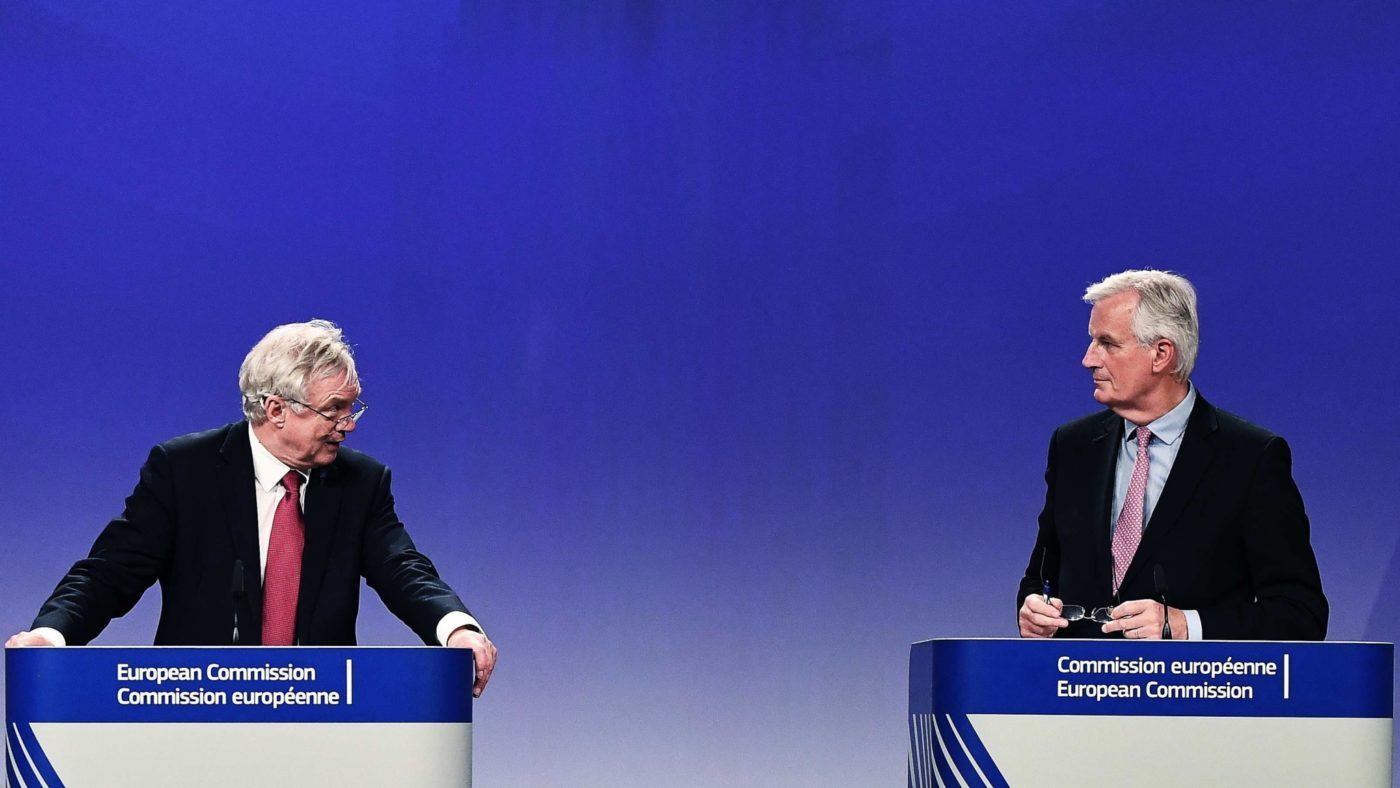The Government, including the various factions in Cabinet, appears to remain settled on the Brexit destination set out in the January White Paper – a new deep and comprehensive trade and customs agreement outside the single market and customs union. All seem to agree the UK must be able ultimately to conduct its own trade policy and conclude bilateral agreements independently of the EU.
The issue now is how to get there. It has always been clear that Brexit cannot be brought about by the flick of a switch at midnight on 29 March 2019. It is a process, not an event. The Prime Minister recognised this in her Lancaster House Speech in January. She was clear that she wanted to avoid an “unlimited transitional status, in which we find ourselves stuck forever in some kind of permanent political purgatory.” But she recognised that there would need to be a period of “implementation” or “phasing” to allow businesses and governments to prepare for new arrangements on issues such as immigration control, customs systems, criminal justice cooperation and financial services regulation. “For each issue,” she added, “the time we need to phase-in the new arrangements may differ.”
The UK’s insistence that all the future long-term UK-EU arrangements can be finalised within the Article 50 time frame has always been in doubt. The refrain often heard from EU officials is that the UK does not know what it wants. This is rather unfair. The truth is that it takes two (or 28) to tango and the EU27 have not yet collectively considered, let alone agreed, how “deep and comprehensive” an agreement with the UK can or should be. Or, in other words, what price the UK must pay for its non-membership of the EU.
So, for practical and political reasons, everyone is now focused on what a transitional deal to span the UK’s formal exit and the conclusion of a final long-term settlement would entail. A staggered transition could satisfy enough Brexiteers on one side and EU negotiators on the other.
Replacing Customs Union membership with a new customs co-operation agreement that allows the UK to develop its own trade policies must be a top priority for the Government. There are practical difficulties to overcome, particularly on the island of Ireland, but until the UK is able to conduct its own trade policy and build new economic relationships it will be in the EU’s perpetual ward of court. Brexiteers are right that unless the UK leaves the Customs Union, Brexit doesn’t mean Brexit. This, however, does not preclude a temporary Customs Union arrangement while the administrative systems are put in place. Even so, the UK should aim to be out of customs union by 2020 or 2021.
Phasing out Customs Union membership would be mirrored by the phasing in of a zero-for-zero tariff deal on goods trade, which would form the foundation of an eventual new UK-EU trade agreement. This should be the easiest part of a future UK-EU deal to negotiate. At this point the UK could conclude its own, limited trade deals in goods and German car makers would secure their access to the UK market.
The UK may need to remain in the Single Market a little longer, until a deep and comprehensive deal with the EU, covering services, can be concluded and ratified. This would mean broad UK adherence to the EU’s “four freedoms”, including the free movement of people but with some new flexibility. The legal vehicle for UK Single Market membership outside the EU would either need to be membership of the European Economic Area or an agreement closely mirroring it, but EU law would no longer have direct effect in the UK. The risk of facing a legal “cliff edge” would be reduced, since the UK would implement EU legislation domestically and would not face the situation it does now of having to transpose the entire acquis to the UK statue book in one go.
There would need to be judicial oversight of the arrangement. The UK might have to accept ECJ jurisdiction (or some arrangement like it) for Single Market matters during this period. Alternatively, it could use the EFTA court or some new institution, but would begin implementing independent agriculture, fisheries and regional policies. New bilateral arrangements for crime and security cooperation could also be phased in during this period.
A primary concern in Brussels about this whole process is money for the current EU budget, which formally expires in 2020, but due to long-term commitments, requires funding up to around 2023. Retaining Single Market membership until this time could therefore kill two birds with one stone. After this, reduced UK contributions could follow the Norway “pay to play” model whereby it contributes to any schemes it continues to participate in, such as student exchange or research and development programmes.
The UK needs to avoid transition becoming a permanent limbo. This is why leaving the Customs Union as soon as possible is so important. It would increase the UK’s leverage and signal Brexit is well underway. A sunset clause on Single Market membership could also be introduced. Politically, the recent election creates more time for transition but the Government will want to have the long-term deal in place by the next General Election.
Clearly, this timetable is not as swift an exit as many would like. But it would be small price to pay for the right deal in the end.


